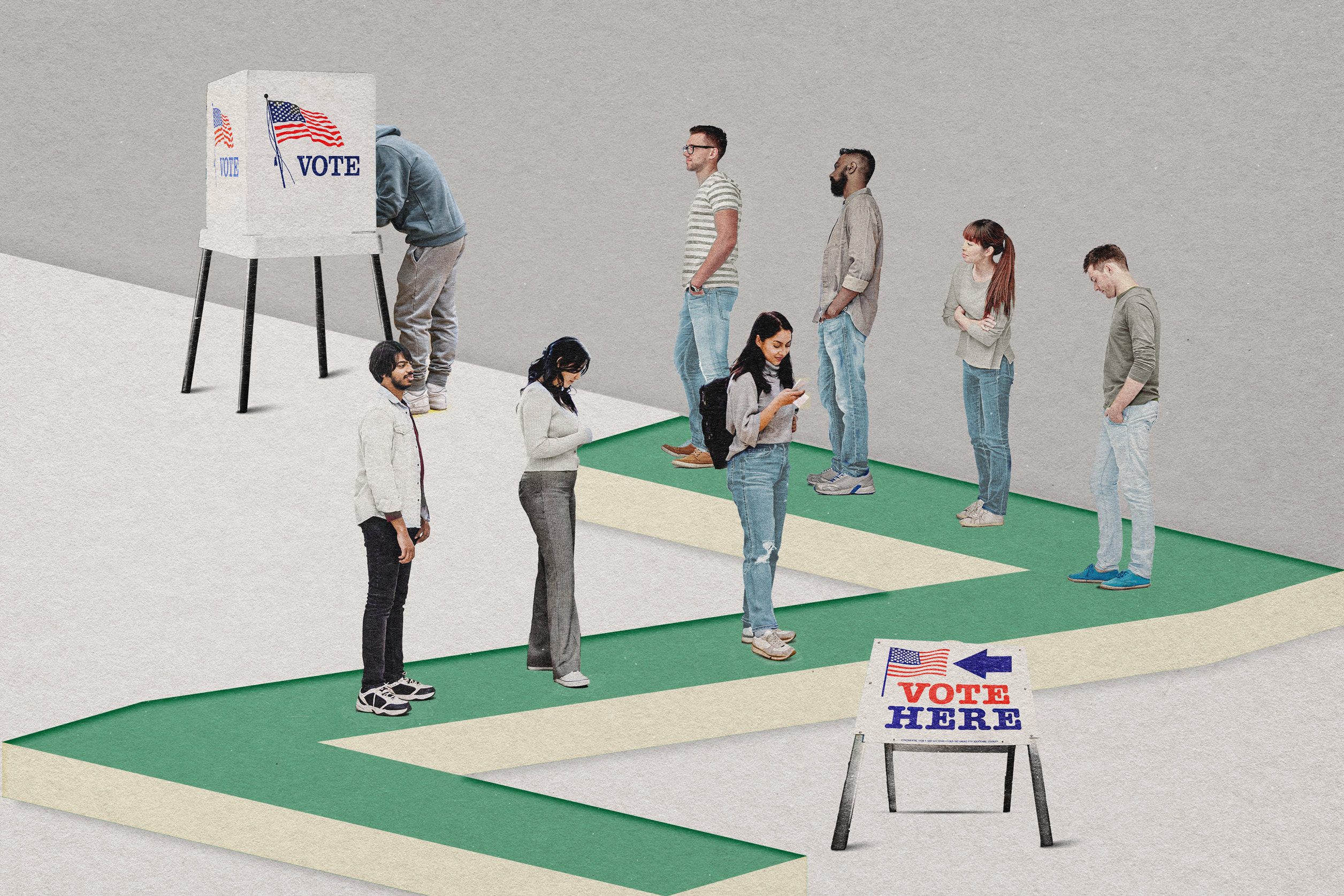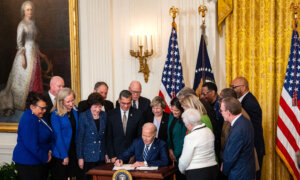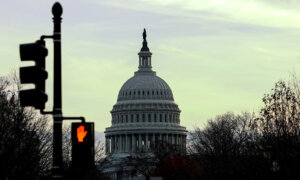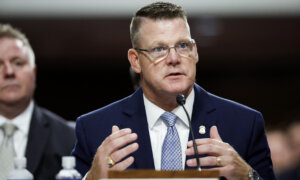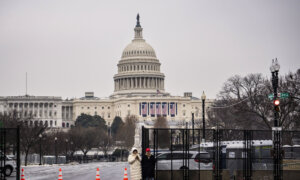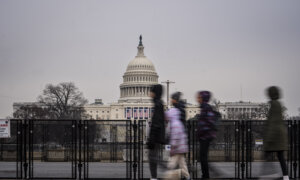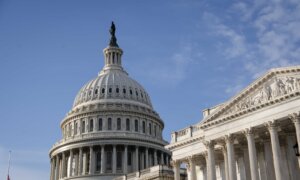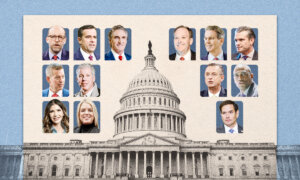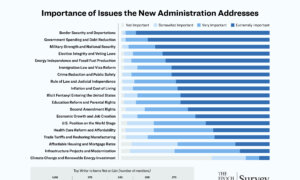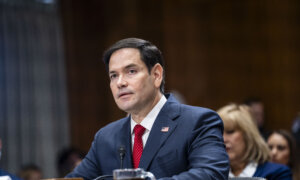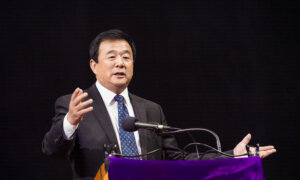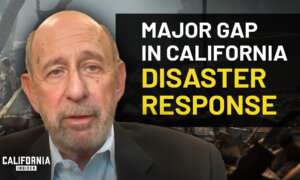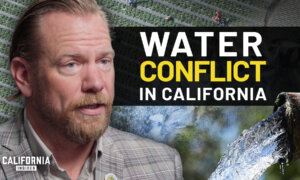The 2024 presidential election is the first in which the majority of Generation Z—those born between 1997 and 2012 and currently aged between 12 and 27—will be eligible to vote.
Often called Gen Z or Zoomers, the newest generation of voters, aged 18 to 27, tend to have an outlook different from that of older generations.
Gen Zers make up roughly 20 percent of the U.S. population. But they’re greatly outnumbered in voter registration by older generations: An April study found that fewer than 40 percent were registered to vote.
The majority were born after the 9/11 terror attacks in 2001; even those born before then were too young to remember much about it. They were in elementary school or younger during the 2008 stock market crash. They were raised alongside technology such as smartphones, with little to no recollection of the world before the internet. They’re tech-savvy, relying on social media platforms including Instagram, TikTok, and X to communicate and stay in touch.
And recently, they’re more politically divided along gender lines than ever before, as women trend toward Democrats while men trend Republican.
A New York Times/Siena poll conducted over the summer found a massive 51-point political divide between men and women aged 18 to 29, including the youngest millennials and the oldest Gen Zers. These women favored Vice President Kamala Harris by 38 points, while men favored former President Donald Trump by 13 points.
Young men who spoke to The Epoch Times consistently listed the economy as their biggest concern, regardless of which candidate they supported.
Many young women, particularly those leaning toward Trump, also mentioned the economy. But they were also more likely to list access to abortion or dislike of Trump’s personality as their leading concerns.
With Gen Z on track to have its biggest political impact yet, The Epoch Times spoke to dozens of Gen Z voters across the United States. Here’s what they had to say about the impending contest.
It’s the Economy
The economy is the most prominent issue for Gen Z. Trump and Harris voters alike cited financial worries.Rising grocery and fuel prices due to inflation, taxes, and housing were the preeminent economic concerns they listed. Others referenced jobs.
“I’m going to the grocery store, almost breaking down, because why are five things $70? It doesn’t make sense,” Kaitlyn Glover, an 18-year-old nursing major at Kennesaw State University, told The Epoch Times.
She said she is leaning toward Trump.

People shop at a grocery store in Columbia, Md., on June 8, 2024. The economy is the most prominent issue to Gen Z, according to those who spoe to The Epoch Times. (Madalina Vasiliu/The Epoch Times)
Glover also mentioned housing costs, saying she was unsure, in the current market, whether she would be able to find an apartment to live off-campus.
“I want to have that first step of getting my own apartment with roommates and splitting the rent. But everything is $1,000 per bedroom,” she said.
Many young men listed anxieties, not only about the current economy but also about their long-term ability to provide for a family.
Nazir Mbami is 17 years old, but he’ll be 18 by Election Day. He plans to vote for Trump, listing two primary concerns: the economy and immigration.
“We are losing jobs, people like me, who are low socioeconomic [status]—people are losing jobs because they’re being filled by people that are ... not supposed to be here,” Mbami said, referencing the mass influx of illegal immigrants under President Joe Biden.
He and others mentioned home ownership as a long-term consideration.

Buying a home is a common source of anxiety among Gen Z. One survey of the cohort found that 54 percent worry they’ll never be able to own a home, and 80 percent expect the market to get worse before they can.
Mbami referenced the high average salary needed to purchase a home these days.
According to research by Zillow, a $59,000 salary was enough to comfortably afford a mortgage in 2020. Since then, it’s nearly doubled, increasing to $106,000—a difference of $47,000 in just four years.
“That’s not very realistic, especially [for] entry-level,” Mbami said.
Abortion
For many Gen Z women who spoke to The Epoch Times, access to abortion is a leading concern. Several mentioned it as a top issue.Sarah Chamberlain, president and CEO of The Republican Main Street Partnership, focuses on women voters. She said that abortion laws in some states since the overturning of Roe v. Wade had hurt Republicans with young women, although that group was already heavily Democratic.

Pro-life supporters pour red paint on the ground during the National Women's March in Washington on Nov. 2, 2024. (Amid Farahi/AFP via Getty Images)
Harris has sought to capitalize on a pro-abortion message.
Eighteen-year-old Amon Matar-Philpot, a student at Georgia’s Kennesaw State University, told The Epoch Times that she takes a hardline stance in favor of abortion access under basically all circumstances.
“Even if a woman has an abortion ‘just because,’ that’s her right,” she said. “There’s no way in the world we should be telling people when they can have an abortion, why they can have an abortion, or what their stance on abortion should be.”
While most men listed the economy as their top issue, a few planning to vote for Harris also listed abortion as a top priority.
Kason Heilman, an 18-year-old IT major at Kennesaw State, said pro-choice concerns were also at the top of his priorities: “Abortion, definitely. And then inflation. Those are probably the two biggest things for me.”
Other young voters made their pro-life sentiments clear.
Natalie Alice, 19, said, “Abortion is not something I would ever do.”
She said abortion isn’t “a gigantic issue” for her in the election.
“I don’t think abortion should be a right, no matter what,” Noah Nesbitt, 18, told The Epoch Times.
Gender Divide
Many Gen Zers who spoke to The Epoch Times have noticed the rise in polarization between men and women in their generation—particularly online.Many Gen Zers also feel increased pressure to hide their political loyalties from friends and family.
An Axios survey of 1,858 registered voters found that Gen Z is the most likely of any generation to be untruthful when discussing their vote, with 48 percent saying they’ve lied to others about which candidates they support. By contrast, only 23 percent of all adults surveyed said they had lied about that.
That’s unsurprising, as studies have shown that Gen Z is increasingly opposed to dating people with different political beliefs.
According to The Harris Poll, among the youngest voters—including Gen Z and millennials—about 56 percent of Republicans say they would date a Democrat, while 42 percent of young Democrats say they would date a Republican.

People wait in line to vote on the last day of early voting at the High Museum of Art in Atlanta on Nov. 1, 2024. (Elijah Nouvelage/AFP via Getty Images)
They’re also increasingly divided by education. Government statistics show that as of fall 2021, women’s college enrollment exceeded men’s by nearly 20 percent.
Several young voters linked this rising polarization to social media, where both genders increasingly spend their online time in gendered spaces that appeal primarily to one sex or the other.
Some simply avoid the other sex for the most part.
Outside a Durham, North Carolina, rally for Harris that featured former President Bill Clinton, a young woman weighed in on polarization.
Cassidy, who did not wish to share her last name, waved a Palestinian flag during the event. She said she will vote for Harris despite having misgivings about her foreign policy stances.
“I don’t have a lot of men in my life. The men who are my age are often aligned with myself,” she said, noting that she has older millennial brothers who are “on the more conservative side.”
Gen Z Harris voter Noah Mason thinks gender-based political polarization is a problem.
“Social media plays a big part in it, too,” he said.
Many referenced male-dominated online spaces, pointing to names such as Andrew Tate, Jordan Peterson, and Joe Rogan—influencers overwhelmingly followed by men.
Trump and his running mate, Sen. JD Vance (R-Ohio), both made appearances on Rogan’s popular podcast in the final days before the election.
Young women often congregate in more feminist-oriented spaces.
Podcasts like “Call Her Daddy” appeal to many young women, and Harris targeted them by making an appearance on the show.
Ryder Shaw, a Trump supporter and student at East Carolina University, said he has observed polarization, including, but not exclusively, along gender lines.
“At least in our generation, it’s definitely become more split,” Shaw said outside an early voting site in Apex, North Carolina.
“Same for the old people,” Shaw’s mother, Trump voter Ashley Anderson, interjected.
She was referring to polarization more broadly and described people unfollowing each other on social media over political disagreements.
Chamberlain chalked up much of the polarization to the different interests each sex has in politics.
Women are far more interested in social issues—not only abortion but also race, sex, and sexuality-related issues. Men tend to care more about the economy, and many have been turned off by Democrats’ focus on social issues.
